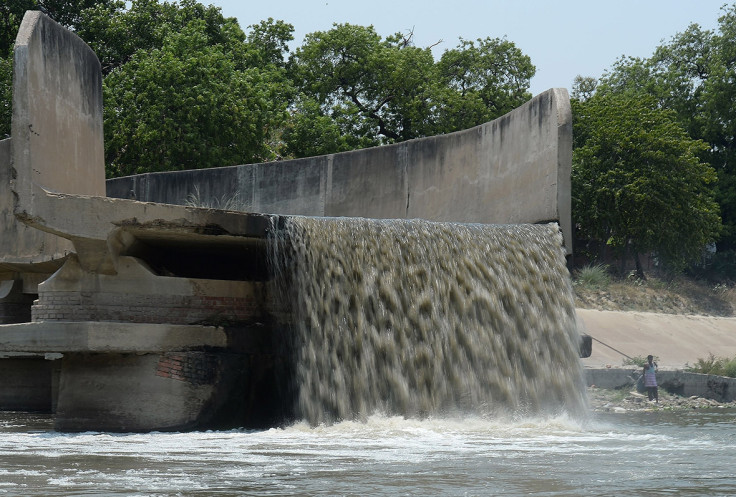Thames Water hit with over £3 million fine after sewage flooded two rivers
In 2017, millions of litres of raw sewage flooded two rivers in the Gatwick region and investigators found nearly 1,400 dead fish. As a result, Thames Water has been fined £3.33 million.

Thames Water has been accused of deliberately misleading the Environment Agency during its investigation into the waters. As a result, Thames Water has been fined £3.33 million.
In 2017, millions of litres of raw sewage flooded two rivers in the Gatwick region and investigators found nearly 1,400 dead fish. An Environment Agency officer reported that the Gatwick Stream and the River Mole were "carpeted" with dead fish.
The influx of sewage left nearly five kilometres of river in grave danger. The waters were popular amongst anglers and were home to protected species like the European eel, brown trout and countless others.
Jamie Lloyd, a Senior Officer at the Environment Agency, declared: "Thames Water failed to take responsibility for the incident until several years later – and didn't provide vital information when requested by the Environment Agency during our investigation."
The Environment Agency has declared that the 1,400 fish that were found deceased, are only a fraction of the number that the agency believes were killed by the bacteria-infested waters.
The species that were killed by the sewage infestation include a 6lbs barbel, plus bream, chub, gudgeon, perch, pike and roach.
During the start of the angling fishing season, Dr Graeme Storey, the Environment Agency Fisheries Manager emphasised: "We know how important it is to make sure fish stocks are protected and remain healthy and resilient."
The Environment Agency informed Lewes Crown Court that the pollution was caused by a faulty water pump in the region near Gatwick Airport. The Thames Water pump, which was activated in error, filled the storm lagoon with untreated sewage. The flood of waste led to a storm lagoon releasing huge amounts of sewage and rainwater into the stream. The excess liquid was inherently pushed into the Gatwick Stream and the River Mole.
This weekend in Dorking & Reigate we sent a clear message the government & water companies to clean up their act & stop dumping raw sewage in our River Mole & other waterways.
— Extinction Rebellion Dorking (@xrdorking) January 30, 2023
We are doing this for our children, for the planet & to prevent further biodiversity loss#dirtywater pic.twitter.com/BPI7THEpWN
Logbooks were also presented to Lewes Crown Court that showed Thames Water staff consistently rated their equipment in the Gatwick region as "unsatisfactory" in the months leading up to the pollution incident.
Although Thames Water initially refused the allegations against their infrastructure having nothing to do with the pollution, Thames Water later pleaded guilty to four breaches of environmental law.
Jamie Lloyd, who led the investigation into Thames Water, said: "Thames Water missed several opportunities to prevent this pollution incident from occurring... When the alarm was raised, no decisive action was taken until the damage was done."
Thames Water pleaded guilty to allowing the untreated water to pour into the two rivers from the lagoon, despite being in storm conditions.
Sarah Bentley, the former CEO of Thames Water, officially resigned last week on Tuesday 27 June.
In the Chief Executive's resignation statement, Sarah Bentley said: "The foundations of the turnaround that we have laid position the company for future success to improve service for customers and environmental performance. I wish everyone involved in the turnaround the very best."
The restricted size of the Thames Water storm lagoon also violated environmental laws. The Thames Water lagoon was only three-quarters the legally required size, which inherently led to a faster build-up of filthy liquid.
According to Lewes Crown Court, Thames Water missed a range of options to mitigate the pollution disaster.
Thames Water has since developed a 'Turnaround Plan' and insists that in the first six months of 2023, they have reduced customer complaints by 43 per cent.
Thames Water has also pledged that it will continue to offer multi-channel experiences and remain transparent, together with improving river quality and assisting with reducing sewage pollution.
Between the years 2017 and 2023, the Environmental Agency has prosecuted Thames Water for several incidents. These prosecutions have led to a sum of £35.7 million in fines.
© Copyright IBTimes 2025. All rights reserved.






















